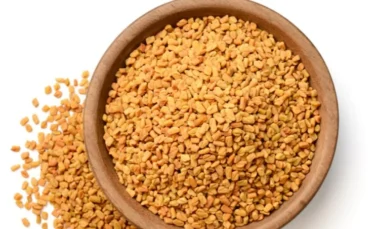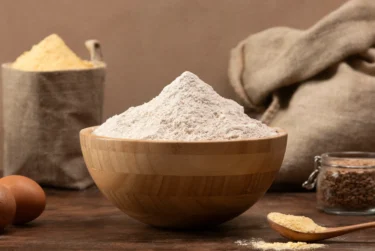10+ Easy Home Remedies To Reduce Weight
By Dr. Raghuveer +2 more

Get,

to manage your symptom
Get your,


4 Cr+ families
benefitted

OTP sent to 9988776655



You’ve successfully subscribed to receive
doctor-approved tips on
Whatsapp

Get ready to feel your best.

Hi There,
Download the PharmEasy App now!!


Register to Avail the Offer
Send OTPBy continuing, you agree with our Privacy Policy and Terms and Conditions

Hi There,
Sign up on PharmEasy now!!
Trusted by 4 crore+ families

OTP sent to 9988776655



You have unlocked 25% off on medicines




Code: NU25

Comments


Leave your comment here
By Dr. Raghuveer +2 more
Table of Contents
Many individuals frequently experiment with various diets to maintain an ideal body weight. For those who struggle with restrictive or complicated plans, simple, home-based dietary practices using commonly available ingredients may offer supportive benefits. These methods, when adopted sensibly and under guidance, can complement a healthy lifestyle without depending on expensive supplements or extreme regimens.
While achieving and maintaining a healthy weight is important for individuals who are overweight or obese, it is equally essential to ensure that the diet remains nutritionally balanced. Some diets excessively restrict macronutrients like fats and carbohydrates, which may adversely affect metabolism and overall physiological functions. A sustainable plan should aim for moderation rather than elimination, supporting long-term health goals

So, which diet should you follow? What home remedies can help you to control your weight? What are the best supplements for weight loss? Read on to find the answers –

Lemon and honey are widely used household ingredients and are often included in morning routines. A warm glass of lemon water with a small amount of honey may support hydration, aid digestion, and provide a refreshing start to the day. While these ingredients have traditional uses and some health benefits, there is limited scientific evidence to suggest that they directly lead to fat loss. However, when incorporated into a balanced diet and healthy lifestyle, they may support general well-being1.

Many traditional Indian spices such as fenugreek seeds (methi), carom seeds (ajwain), and black cumin seeds (kali jeera) have been used in Ayurvedic and folk practices for digestive and metabolic support. Some preliminary studies suggest that these spices may help improve digestion and support metabolic health, which can indirectly aid in weight management. However, their role in directly reducing fat—especially in specific areas like the belly, is not conclusively proven.
A practical way to incorporate these spices is by dry roasting equal parts of fenugreek, carom, and black cumin seeds, grinding them into a fine powder, and consuming a small amount with warm water once daily. While this may help in improving digestion and metabolic support, sustainable weight loss primarily depends on balanced nutrition, physical activity, and overall lifestyle modifications.

Cinnamon (Dalchini) is a commonly used spice in Indian cooking, known for its distinct aroma and flavor. Some studies suggest that cinnamon may help improve insulin sensitivity and reduce blood sugar spikes, which could indirectly support weight management. However, it should be considered a supportive addition rather than a standalone solution for weight loss2.
A traditional method to include cinnamon in your routine is by preparing a simple infusion. Warm a glass of water, add 1–2 small cinnamon sticks, and let it steep. Once lukewarm, add a teaspoon of honey, mix, and strain. Consuming this on an empty stomach may offer digestive and metabolic support. However, this should complement a healthy diet and lifestyle, not replace them.

Garlic, a common kitchen ingredient, is well-known for its antimicrobial and anti-inflammatory properties. Some traditional practices suggest that consuming 1–2 raw cloves of garlic in the morning may support metabolism and overall health, which could indirectly aid in weight management. Although the strong flavor and smell may be challenging at first, regular use can become tolerable over time. It’s advisable to rinse your mouth afterward to reduce lingering odour3.

The sugars naturally found in fruits and vegetables are generally healthier than added or refined sugars. If your goal is weight loss, it is advisable to minimise your intake of processed sugars found in sweets, ice creams, and sugary beverages. Instead, focus on whole fruits and vegetables to satisfy your sweet cravings, as they come with the added benefit of fiber, vitamins, and minerals.
For example, vegetables like onions release a mild natural sweetness when sautéed slowly. This can enhance the flavour of your dishes without needing to add refined sugar. Similarly, carrots and certain types of pumpkin also contain naturally occurring sugars that contribute to a subtle sweetness. Using these ingredients creatively can help reduce your reliance on added sugars in cooking.

Drinking an adequate amount of water each day is a simple yet important factor in supporting healthy weight management. Many people do not consume enough water because they may not be aware of the recommended amounts or only drink when they feel thirsty4.

Getting adequate sleep is more of a lifestyle choice than a home remedy, but it is a simple and important step that everyone can adopt with some effort. Despite busy schedules and competing priorities, aim for at least 8 hours of sleep each night. Adequate sleep is as essential as maintaining a balanced diet for effective weight management5.
Sleep plays a critical role in regulating bodily functions, including hormone balance and digestive health. It helps maintain a healthy metabolic rate, which is important for reducing excess body fat and supporting overall weight loss.

Psychological factors play a significant role in shaping our lifestyle choices, including eating habits. The way our brain perceives our environment affects how much food we consume. For example, the size of the plate can influence portion size using a large plate may increase the risk of overeating.
This occurs because the brain associates plate size with the amount of food required. Larger plates tend to encourage larger portions, while smaller plates promote smaller servings. Eating from a smaller plate may help you feel satisfied with less food. Therefore, switching to a smaller plate can be a simple and effective strategy to support weight management6.

This eating pattern has been supported by research globally. Instead of consuming three large meals, breakfast, lunch, and dinner, try eating smaller, lighter meals every 3 to 4 hours. Consuming six lighter meals throughout the day helps prevent your stomach from being empty for long periods, which can support better digestion and energy levels7.
Eating frequent smaller meals can help prevent overeating. Long gaps between meals, such as between breakfast and lunch, can lead to excessive hunger and result in consuming larger portions. Having a small snack between meals reduces hunger and makes it easier to control portion sizes during main meals.

Meat, chicken and poultry should always be consumed only after proper cooking. However, some vegetables such as tomatoes, lettuce, spinach, carrots, and corn provide added nutritional benefits when eaten raw. Consider making a salad with these vegetables daily. Raw vegetables are an excellent source of fibre, which promotes healthy digestion. Efficient digestion is essential for the breakdown of fats and supports weight loss.
When consuming raw vegetables, it is advisable to choose organically grown produce whenever possible. Organic vegetables are free from insecticides and pesticides, which can be harmful when ingested raw. Incorporating raw organic vegetables into your diet is an effective natural strategy to support weight loss. Always ensure vegetables are thoroughly washed before consumption.
Also Read: Effective Home Remedies for Lice Removal

Proper chewing is essential for good digestion and helps prevent overeating. Studies show that people who eat slowly and chew their food thoroughly tend to consume fewer calories compared to those who eat quickly without chewing properly9.
Chewing breaks down food into smaller pieces and mixes it with saliva, which helps initiate digestion. When food is not chewed properly, the stomach takes longer to digest it, which may contribute to digestive problems and potential weight gain.
Additionally, eating slowly increases the likelihood of feeling full after consuming smaller portions.

Grains are a staple food in India, consumed daily either in whole form or as flours. Whole grains offer the most health benefits. In contrast, refined grains or flours like maida are less healthy and may contribute to weight gain because they consist mainly of simple carbohydrates10. This is because the refined flours are made out of simple carbohydrates.
Whole grain flour (atta) is more beneficial as it contains a good amount of fibre along with carbohydrates. This fibre supports healthy digestion and bowel regularity. For rice, it is better to choose brown rice over white rice for the same reasons.

While this is not strictly a home remedy, quitting smoking is an important step if you want to lose weight. Smoking negatively impacts your health and can hinder your efforts to reduce excess weight. To support your weight loss and overall health, consider quitting smoking11.
Nicotine and other chemicals in cigarettes harm your body and can reduce your motivation and ability to exercise regularly. Quitting smoking can improve your overall health and make it easier to adopt an active lifestyle. Try to replace smoking with healthy habits such as a morning walk or jog.

Stress and tension are common in today’s fast-paced world, where many people juggle multiple responsibilities. While work and income are important, it is equally essential to take time to enjoy life’s simple pleasures. Studies show that individuals experiencing high stress levels may find it harder to lose weight compared to those who are more relaxed.
One effective approach is to practice meditation and breathing exercises regularly. These techniques can promote relaxation and support your weight management efforts. Breathing exercises also improve oxygen intake, which can enhance overall well-being12.
Another effective way to reduce stress is to plan family outings or vacations. Taking regular breaks throughout the year can help you feel rejuvenated and improve your overall happiness.

Yoghurt, a common ingredient in Indian kitchens, can be homemade or purchased from stores. It is most beneficial when consumed plain, without added sugar or flavoring. Made by fermenting milk, yoghurt contains beneficial probiotics that support gut health, along with essential nutrients found in milk13.
Yoghurt can be eaten on its own or used as a dressing for salads. It promotes the growth of healthy gut bacteria, which aid digestion. Additionally, yoghurt helps increase feelings of fullness, supporting appetite control without adding excessive calories.
In my experience of all the remedies for weight loss, Intermittent fasting for 16 hrs a day often gives good results in people who are otherwise healthy. But people with underlying conditions like diabetes, heart disease and kidney disease should not try fasting without consulting their doctor.
Dr. M.G. Kartheeka, MBBS, MD(Pediatrics)
Also Read: How To Lose Face Fat At Home Naturally

Natural fruit and vegetable juices can be a helpful way to meet your body’s nutritional needs without consuming excessive calories. These beverages are typically low in added sugars and fats, which may assist in managing your overall intake of high-calorie foods. It is important to note, however, that while such drinks are often marketed as ‘juice cleanses for weight loss’, they do not cleanse the body in a medical sense. Rather, their benefits are generally linked to reduced calorie intake and the provision of essential vitamins and minerals, which may be especially useful when following a calorie-controlled diet14.

Crash diets are extreme eating plans that often involve prolonged fasting or the exclusive consumption of fruit juices. Such approaches can be harmful, as they may lead the body to break down muscle tissue in addition to fat. Moreover, research suggests that any weight loss achieved through these methods is frequently temporary, with individuals often regaining the lost weight over time. As a result, these diets typically do not offer sustainable or long-term health benefits15.
Rather than following extreme diets, it is advisable to consume regular meals prepared with minimal oil, sugar, and salt. Incorporate a variety of vegetables and fruits into your daily routine, along with sources of protein such as eggs, poultry, or lean meats. Adopting and maintaining this kind of balanced eating pattern, alongside a healthy lifestyle, can support overall well-being and may contribute to gradual and sustainable weight management.
Also Read: Best Exercises to Lose Belly Fat That You Should Try
Consider trying these home-based suggestions and take note of how they work for you. If adopting all of them at once feels overwhelming, begin with just a few and focus on gradually integrating them into your daily routine. Consistent, steady efforts often lead to meaningful and lasting results. To make the process easier, establish a simple daily schedule that accommodates these practices without demanding too much of your time. As these tips are intended to be practical and manageable, they should fit well even within a busy lifestyle.
Also Read: Ajwain: Uses, Benefits, Side Effects, and More!
The most effective way to manage weight at home involves a combination of a calorie-controlled diet, regular physical activity, and adequate sleep. The suggestions provided throughout this article are intended to support this holistic approach. When implemented consistently, these practices can contribute to improved overall health and gradual, sustainable weight management.
Yes, a protein-rich diet would be low in fats and would contribute to increased muscle mass and fat reduction. Individuals can have a protein-rich diet to lose weight (by reducing fat consumption) and to gain weight (by increasing muscle mass).
Rapid weight loss is generally not advisable, as it often involves extreme dietary practices such as prolonged fasting or the elimination of essential macronutrients. These methods can be detrimental to your overall health and may not result in sustainable weight loss. In many cases, any weight lost through such approaches is quickly regained once the restrictive diet is discontinued. A gradual, balanced approach is far more beneficial in the long term.
Disclaimer: The information provided here is for educational/awareness purposes only and is not intended to be a substitute for medical treatment by a healthcare professional and should not be relied upon to diagnose or treat any medical condition. The reader should consult a registered medical practitioner to determine the appropriateness of the information and before consuming any medication. PharmEasy does not provide any guarantee or warranty (express or implied) regarding the accuracy, adequacy, completeness, legality, reliability or usefulness of the information; and disclaims any liability arising thereof.
Comments

Leave your comment...

View all comments(3)
You may also like
Thank you, glad you liked it.
Thank you for the redia
I want to loose weight